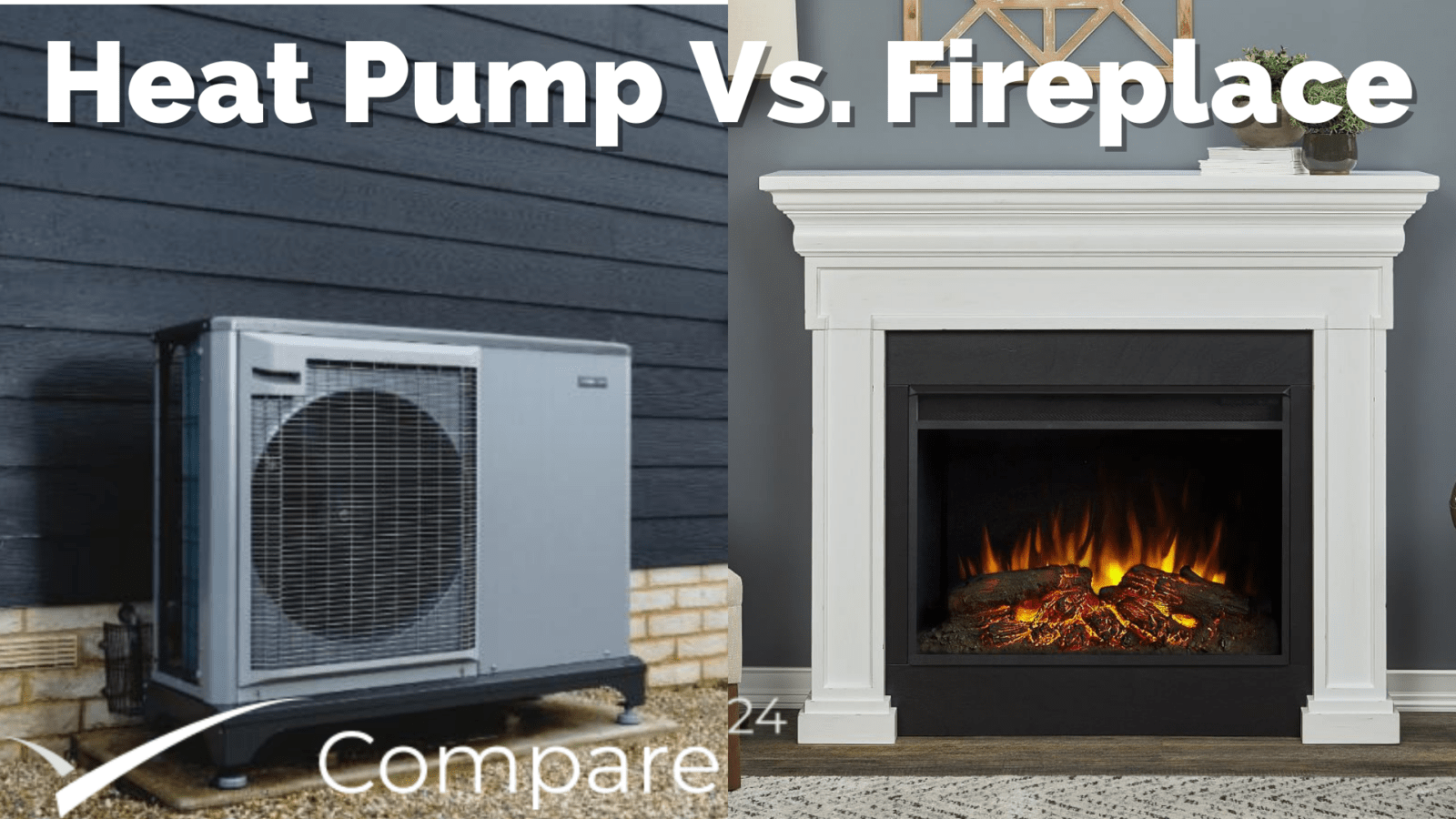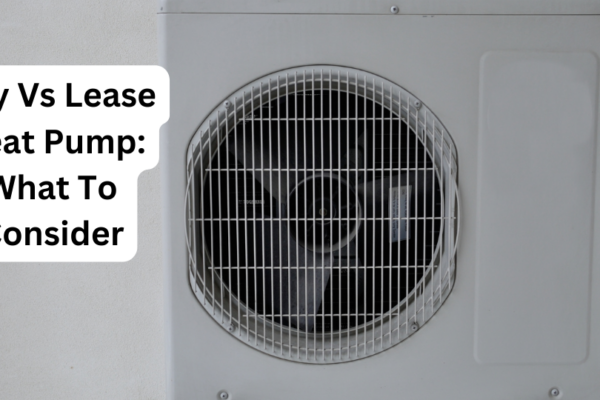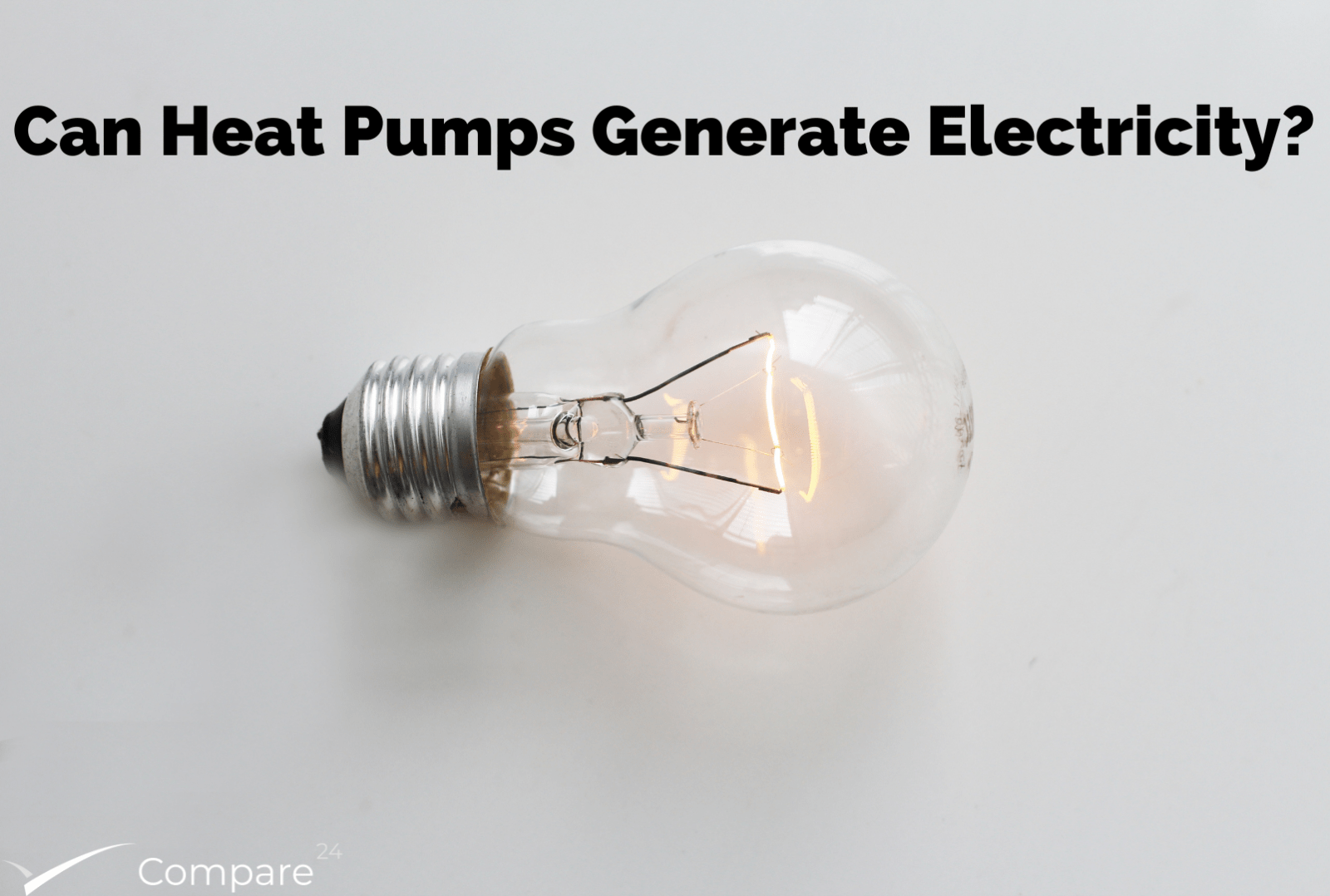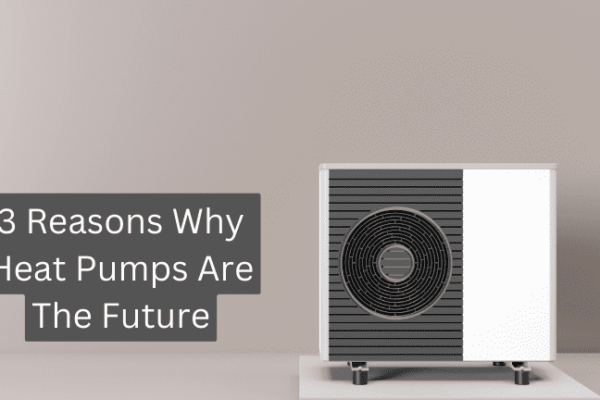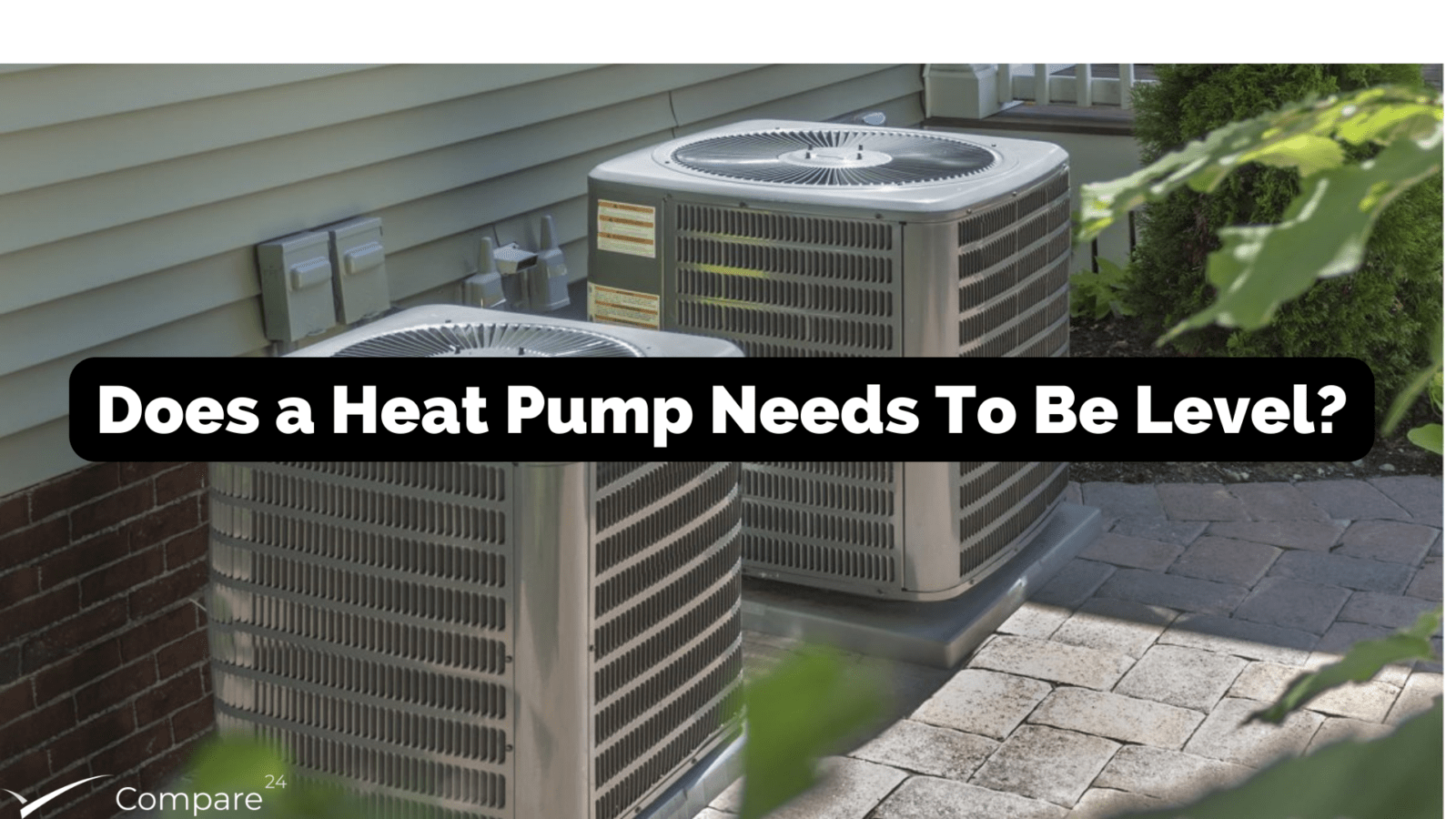If you are currently thinking of updating the heating system in your house, and you are unsure about the differences between a heat pump and a traditional fireplace, this article is perfect for you. In this comparison we’ll look at the major differences between a heat pump and a fireplace, so you can easily decide what is the best heating system to have in your house.
Heat Pump vs Fireplace: Heating Capacity
The main point of comparison between the two systems is the heating capacity of each one. You want to make sure that whatever system you choose, will have the right capacity to heat all your house.
Before diving into the heating capacity of each type of fireplace, and heat pump, you also need to keep in mind that the insulation of your home will also affect the heating capacity of the heating system you have. A house with poor insulation could decrease the heating capacity of your fireplace by up to 50%.
Therefore it is crucial to make sure the insulation of your home, including windows, and doors is reasonable, as it can help make your heating system more efficient, and save you money. A poorly insulated house will force you to use more energy to heat the same area, which ends up costing a lot more.
Heat Pump Heating Capacity
While fireplaces are somewhat limited in the heating capacity they can generate, heat pumps come in different sizes and with very distinct heating capacities, depending on the type of heat pump, model, size, and manufacturer.
In fact, if you have a larger house, a heat pump is by far the best heating technology to install, because depending on the size you will be able to heat all the square meters you need, all you have to do is to buy a larger heat pump. Fireplaces are reliant on the size of the fireplace, and in larger homes, they need to be installed in different rooms.
As a rule of thumb, the heating capacity of a heat pump is measured based on its size, and in tons. The average heat pump size is between 1 and 2 tons, which can produce between 12,000 BTU and 24,000 BTU.
Considering that you need about 300 BTU to heat up to 1 square meter, a 1-ton heat pump will be able to heat 40 square meters, and a 2-ton heating pump can heat up to 80 square meters.
Gas Fireplace Heating Capacity
For fireplaces, the heating capacity varies on whether it is a gas-powered or a traditional wood-burning fireplace. The average gas-powered fireplace heating capacity is usually between 8,000 and 60,000 BTU. The large difference in heating capacity is dependent on the type of gas fireplace, and its size.
A small gas fireplace with 8,000 BTU will be able to heat around 18.5 square meters, which is enough for a smaller living room. Some of the bigger models that produce up to 60,000 BTU, it will be able to heat over 100 square meters, which in some cases is enough for a whole single-family home.
Wood Fireplace Heating Capacity
When it comes to traditional wood-burning fireplaces the average heating capacity is usually between 20,000 BTU and 40,000 BTU. The reason why there is a smaller discrepancy in the heating capacity produced by a wood-burning fireplace and its gas counterpart is the fact that wood-burning fireplaces tend to be of similar size, and can take a similar amount of wood.
A traditional wood burning fireplace capacity is enough to heat between 50 square meters on the low end at 20,000 BTU, and slightly over 100 square meters on the higher end.
Heat Pump vs Fireplace: Efficiency
Heat Pump Efficiency
When it comes to efficiency, the heat pump is the by far one of the most impressive heating systems you can have, because it is able to convert up to 300% of the power consumed. This is the main reason why heat pumps have become such a popular heating system, and why it is worth investing in them.
Because it is so efficient, it can help homeowners reduce the cost of heating their whole, while also having a more reliable heating system, that you have more control over.
At the same time, heat pumps are a far more environmentally friendly way of heating your house, and reducing pollution that naturally occurs when either gas or wood is burned.
Wood Burning Fireplace Efficiency
By far the most inefficient of these systems is the traditional wood-burning fireplace, which is only able to convert between 10% and 30% of its heating capacity into actual heat. While there have been some innovations in fireplace designs, some models that are enclosed are now much more efficient and can convert up to 75% of their heating capacity.
Gas Fireplace Efficiency
Gas fireplaces are on average a lot more efficient than their wood-burning counterparts, but still, they are not totally efficient. Gas fireplaces efficiency varies between 50% to 90%, with some of the most recent models being extremely efficient.
When compared with wood-burning fireplaces, gas-powered options are by far the best choice in terms of efficiency, while also having other advantages.
Heat Pump vs Fireplace: Reliability
In terms of reliability, both options are quite similar. Usually, gas fireplaces tend to last between 10 to 15 years, while traditional wood fireplaces can last a lot longer if the chimney is well-maintained and cleaned regularly.
Heat pumps also last 10 to 15 years, while some models that are well maintained can last upwards of 20 years, depending on the manufacturer, the model, and the type of heat pump.
Heat Pump vs Fireplace: Price and Costs
To consider the cost, we need to be able to consider different aspects, such as the cost to buy and install, as well as the cost to run both fireplaces and heat pumps. Additionally, we also need to consider the maintenance of each system, and how maintenance costs might influence your decision.
Cost to buy and install
The average heat pump can cost between €3,000 and €5,000, and the installation can also cost around the same amount depending on a lot of factors, such as the type of heat pump, as well as the size, and the surroundings of your home. The cost of a heat pump varies a lot depending on the type of heat pump, the size, the manufacturer, the company responsible for the installation, as well as other factors.
An average wood fireplace will cost between €1,000 and €3,000, depending on the size and the design, as well as the company or contractor you choose to hire.
Gas fireplaces tend to be more expensive than wood burning, and it usually costs €2,000 pus €1,000 to €1,500 for the installation.
Cost to run
Heat pumps require electricity to operate, and for that reason, you may see a slight increase in your electricity bill, but overall considering the cost of heating heat pumps tend to be a lot more efficient. This means that the increased electricity cost will save you the money you would spend on other heating systems. The larger-sized heat pump with 36,000 BTU will increase your energy bill by €100 monthly. With the average hourly cost for heating being €0.5 and the cooling setting costing about €0.3 every hour.
Gas-powered fireplaces usually cost around €1 to run every hour, obviously depending on the size and power of the unit.
The cost of a wood fireplace varies a lot, because you may have access to wood, or you may even live in an area where wood is easily available and for that reason, it is cheaper. Considering that the efficiency of wood-burning fireplaces is extremely low, the cost is always going to be slightly higher, unless you can buy cheap wood in bulk.
Maintenance
Due to their higher cost, heat pumps need to be maintained properly, so you can avoid damaging the system. Yearly maintenance costs vary depending on the size, manufacturer, and model of your heat pump, however, the average yearly cost is €100.
Wood-burning fireplaces also have maintenance costs, and the chimney should be cleaned every year, to avoid becoming a hazard. Chimney cleaning services usually cost around €150 to €300, depending on the size of your chimney and where your house is located.
Due to the risks of operating a gas-powered fireplace you should conduct and yearly inspection and cleaning, which usually costs €150. This is important to make sure your gas fireplace is in good condition and does not present a risk to your family and your home.
Risks
One other aspect that should be considered with each heating system is the risks, and how dangerous it is. While heat pumps are completely harmless systems, fireplaces are not, this is why you should consider this when choosing the right heating system for your home.
Fireplaces could be hazardous, and in some instances, they can cause fires, or harm your children or your pets. For this reason, heat pumps are a much better safer and better option.
Environmental Impact
It has become increasingly important to consider the impact of our choices on the environment, and there is no doubt that the heating system in our home can have a direct impact on CO2 emissions.
Heat Pump
A heat pump has no emissions, at least not directly. Only the electricity used to power the heat pump will be responsible for a tiny CO2 emission, which may be non-existent if the electricity is generated using renewables.
Adding to that the heat pump is much more efficient, which means that it is able to transform the same amount of energy into a lot more heat, making it the most environmentally friendly heating system available today.
Fireplace
A traditional open wood-burning fireplace can emit between 50 to 60 grams of CO2 every hour. Gas-powered fireplaces are much more environment friendly, with their emissions being on average 75% lower than traditional wood-burning fireplaces.
Advantages and disadvantages of heat pumps
Advantages
- The most efficient heating system
- Pays off in the long term
- Environment friendly
- Higher control over the temperature in your house
- Ability to cool and heat your house
- Can be used as a dehumidifier
- Safer
- Can heat your water
- Increases the value of your home
Disadvantages
- Large investment upfront
Advantages and disadvantages of fireplaces
Advantages
- Cheaper in the short term
Disadvantages
- Can’t control the temperature with wood-burning fireplaces
- Inefficient
- Dangerous
- Wood-burning fireplaces require wood, and you have to buy it and store it
- More expensive in the long run
- Can’t be used to cool your house
Is a heat pump better than a fireplace?
While it is clear that a heat pump is a much more advanced system that not only offers you more control over the heating in your home but also helps you save money in the long run. While it may cost more initially to buy and install a heat pump, it will prove to be a wise decision because it allows you to save money and make your home more efficient while also helping the environment, and giving you plenty of other options that no fireplace will ever be able to offer.
If you currently have a fireplace, you should definitely consider a heat pump, as it will allow you to save money over the long run, and increase the energy efficiency of your home.
Heat Pump vs Fireplace FAQ
Is a heat pump a fireplace?
No, a heat pump is not a fireplace. A heat pump is a part of an efficient heating system that allows you to heat and cool your home. While traditional fireplaces have been used as a source of heating for centuries, today there are other options available that are far more efficient and environmentally friendly.
Does a heat pump have a chimney?
While a heat pump does not have a chimney, it does require an exterior outdoor unit, with a ventilating system that allows the air to pass through the exterior of the house to the interior.
Is a heat pump considered a furnace?
No, a furnace requires fuel in order to generate heat, and a heat pump is powered with electricity. Additionally, a heat pump is usually located outside the home, so its venting system can refrigerate, and pull the outdoor air, while furnaces are placed in the basement of the house.
